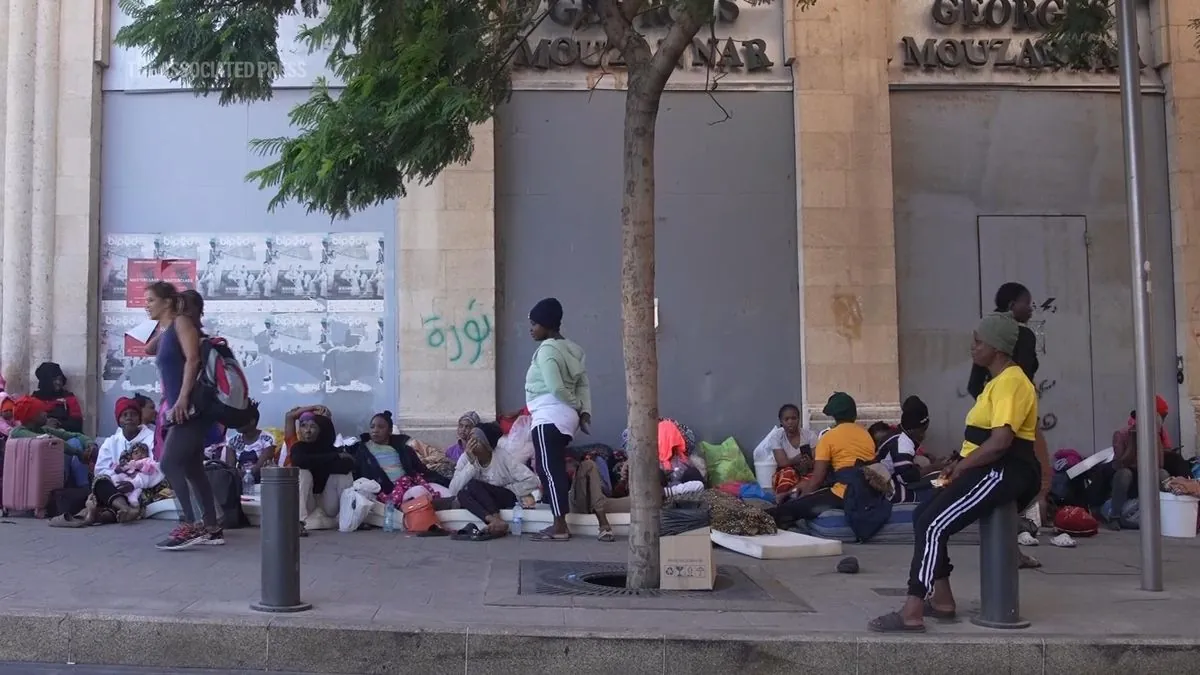The recent escalation of hostilities between Lebanon and Israel has led to a humanitarian crisis, displacing approximately 1.2 million people, including vulnerable migrant workers. As the conflict intensifies, many domestic workers find themselves abandoned by their employers, left to navigate a perilous situation without support or resources.
Fajima Kamara, a 28-year-old mother of three from Sierra Leone, exemplifies the plight of these workers. Having arrived in Lebanon three years ago, Kamara was employed as a domestic helper in Baalbek, a city known for its ancient Roman ruins and strong Hezbollah presence. When Israeli airstrikes began targeting the area in late September 2024, Kamara's employers fled to Dubai, leaving her jobless and homeless.
Lebanon's kafala system, which ties migrant workers' legal status to their employers, has long been criticized for enabling exploitation. This system has exacerbated the vulnerability of workers like Kamara during the current crisis. Without her passport or phone, which were confiscated by her employers, Kamara was forced to join the masses of displaced people seeking refuge in Beirut.
The situation highlights the broader challenges facing Lebanon, a country grappling with multiple crises. Since 2019, Lebanon has been experiencing a severe economic downturn, with its currency losing over 90% of its value. This economic instability, coupled with the ongoing conflict, has strained the country's infrastructure and institutions, including its healthcare system and electricity supply.
Amid this chaos, grassroots efforts have emerged to assist the displaced. On October 1, 2024, Lebanese volunteers opened a shelter in Beirut to accommodate migrant workers who had been turned away from other facilities. The shelter, housing about 100 workers and their children, operates on limited resources, with occupants sleeping on thin cots and eating on wooden pallets.
Dea Hage-Chahine, one of the project leaders, described their round-the-clock efforts to improve conditions at the shelter:
"For now, for those who told us they want to travel, we initiated the process. For those who want to stay, for now, we have the shelter open for them, providing any needs they require. But we don't know what's next."
The United Nations has expressed concern about the situation, reporting that most of Lebanon's nearly 900 shelters are at capacity. They have highlighted the particular vulnerability of the tens of thousands of predominantly female, live-in domestic workers who have been "abandoned" by their employers.
Lebanon's diverse religious makeup and confessional political system add complexity to the crisis. The country's population of approximately 6.8 million includes various religious communities, as well as a significant number of Syrian refugees and migrant workers from African and Asian countries.
As the conflict continues to unfold, the fate of migrant workers like Kamara remains uncertain. Many face the difficult choice between attempting to find new employment in a destabilized Lebanon or returning to their home countries empty-handed. The situation underscores the need for international support and comprehensive solutions to address the multifaceted challenges facing Lebanon and its most vulnerable residents.
